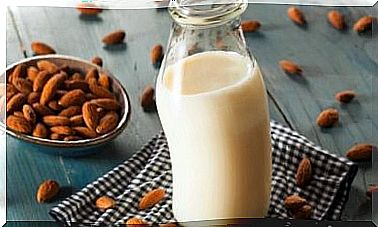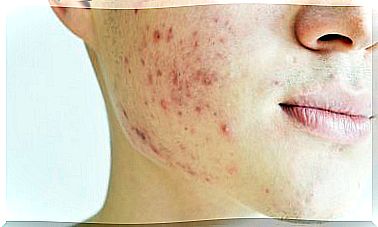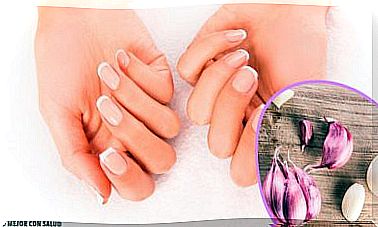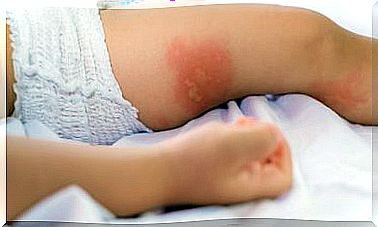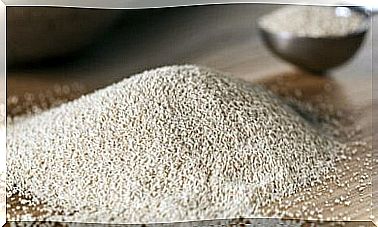Chronic Pancreatitis: Causes, Symptoms And Treatment
Chronic pancreatitis can be prevented with a healthy lifestyle. In particular, alcohol consumption should be avoided. How to avoid complications? In this space we detail it.
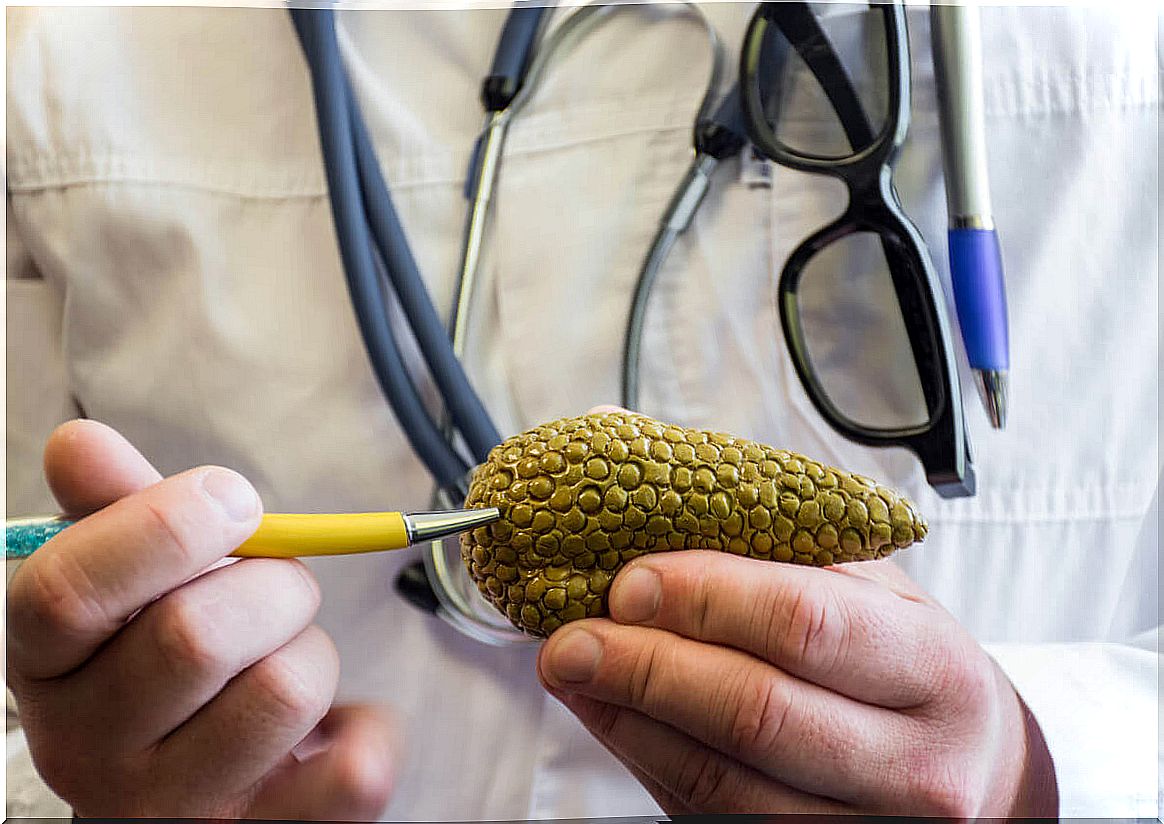
Chronic pancreatitis is not a medical emergency, but it is a delicate state of health that must be treated. Although it is very rarely a direct cause of death, it can cause other serious health problems and deteriorate the quality of life.
This disease is more common in men than in women and almost always occurs between the ages of 30 and 40. Its prognosis is uncertain, but those who suffer from it have a life expectancy below the usual average.
What is chronic pancreatitis?
Chronic pancreatitis is an inflammation of the pancreas that leads to a loss of its functions. This is because there is a progressive and irreversible destruction of its cells, which are replaced by fibrous tissue, which is a kind of scarring.
Under these conditions, the pancreas shrinks and atrophies. The process is long-term and progressive over time. Ultimately, permanent damage occurs. It often causes poor digestion or diabetes.
The pancreas is an organ located behind the stomach, which produces enzymes necessary to digest food. It also secretes two hormones: insulin and glucagon.
If chronic pancreatitis occurs, this organ will no longer produce the correct amount of enzymes. This means that fats and other substances cannot be properly digested.
Although in general terms it is considered an irreversible condition, with the appropriate treatment it is possible to stop the progression of the disease. In some cases, there is even some recovery from injuries.
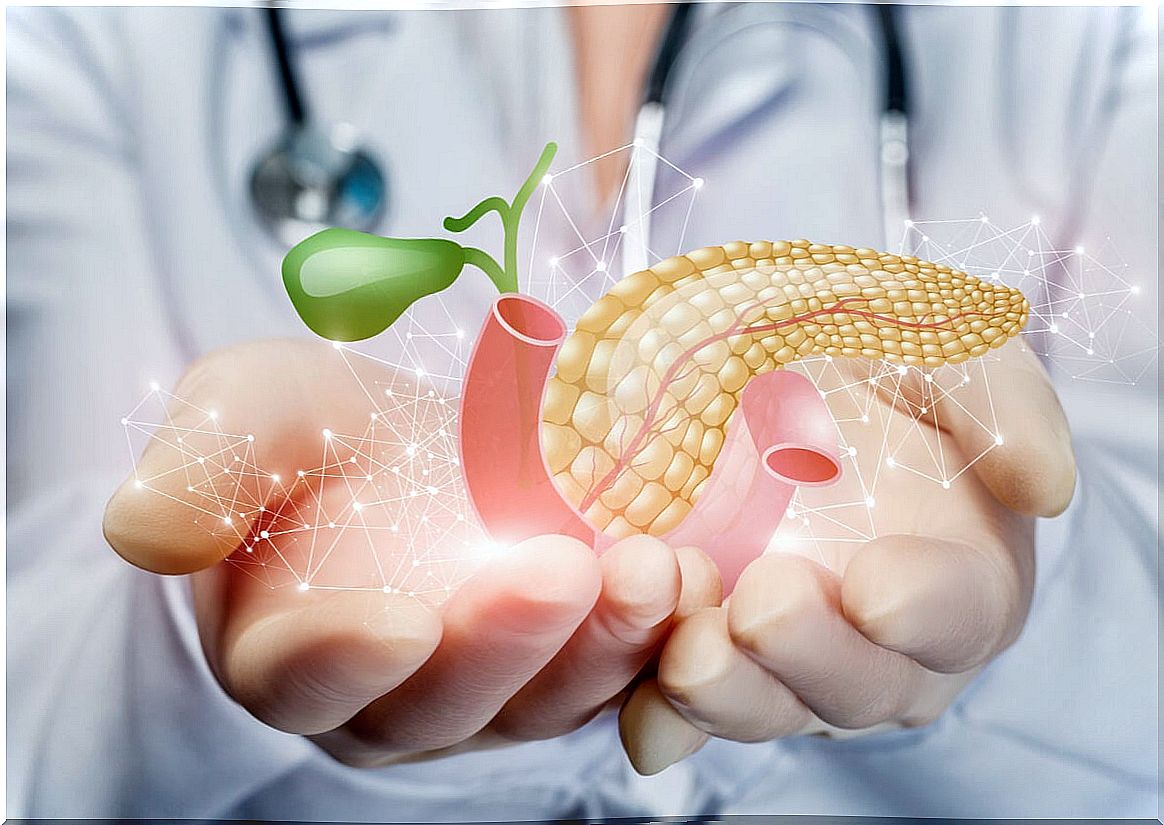
Causes of the disease
In most cases, chronic pancreatitis is caused by excessive alcohol consumption, over several years. This causes acute episodes of the disease to occur and, over time, causes it to become chronic.
It should be noted that there are also cases in which small regular alcohol intakes cause chronic pancreatitis. In any case, 80% of the cases are associated with the consumption of this substance.
Other possible causes of chronic pancreatitis include the following:
- Toxic-metabolic causes. Some metabolic disorders or diseases, such as hypercalcemia, or excess calcium in the body, cause pancreatitis. The same is true for chronic kidney failure.
- Genetics. Sometimes gene mutations occur that lead to a form of inherited pancreatitis.
- Self-immunity. When the immune system itself attacks the pancreas and causes chronic inflammation.
- Obstructive. When the secretion duct in the pancreas is blocked. There is a relationship between gallbladder stones and pancreatitis, but it is not clear why this happens.
- Recurrent. Repeated episodes of acute pancreatitis cause its chronic form.
- Idiopathic. It corresponds to cases in which the cause cannot be identified, after detailed studies.
Symptoms
The typical symptom of chronic pancreatitis is pain. This is usually located in the center of the abdomen and radiates to both sides of the back, in what is known as “belt pain.” The usual thing is that it appears after eating or after consuming alcohol.
This discomfort can last for hours or days, and is sometimes burning. In addition, there are other symptoms derived from the loss of pancreas functions. This leads to digestive problems and failure to regulate sugar.
Digestive disturbances manifest as “steatorrhea,” that is, greasy, light-colored, foul-smelling stools. There is also chronic weight loss (even if the person eats heavily), diarrhea, nausea, and vomiting.
Inadequate regulation of blood sugar, as a consequence of chronic pancreatitis, leads to the development of diabetes mellitus . Usually this occurs in more advanced cases and in patients who already have steatorrhea.

Treatment of chronic pancreatitis
The most important measure to treat chronic pancreatitis is a proper diet. This must be very low in fat and abundant in sources of vitamins and calcium. It is also recommended to drink plenty of fluids and eat small, frequent meals, rather than a few large meals.
Some people may need calcium supplements. Also, on some occasions, the doctor prescribes pancreatic enzymes; These medications are taken with every meal, including snacks. The appropriate thing is not to consume alcohol or caffeine, and to avoid tobacco.
People with severe pain or severe weight loss may require hospitalization. They may need strong pain relievers and an IV feeding temporarily. Sometimes a surgical nerve block is necessary to relieve pain.
If there is a blockage, surgical intervention may be necessary. More serious cases may require partial or complete removal of the pancreas. On the other hand, patients with chronic pancreatitis may require insulin to control blood sugar levels.
